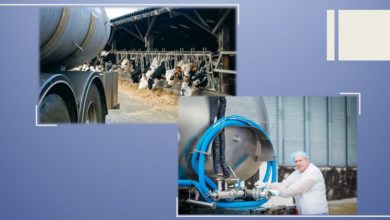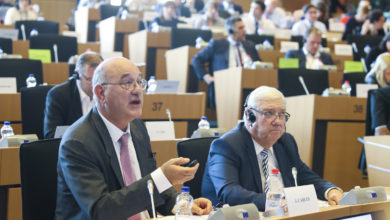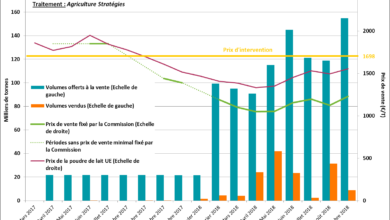“May agriculture be market orientated” has been the line set by the different strings of reforms of the CAP for over two decades: farmers’ productive choices must no longer be dictated by administrative decisions but must follow “market signals”. So be it. But one question remains: are the different markets at the end of each link of the agri-food chain functioning well enough to give out good quality market signals? It is quite obvious that, even though the number of farms is decreasing, farmers outnumber by far agro-supply, transformation and distribution operators. In these conditions, should we doubt the pricing system which, by steering agriculture, should translate the individual preferences of all consumers? Three current events allow us to think that excessive concentration in certain links of the food chain is emerging as one of the main topics for the debates around food and agricultural policies.
The IPES-Food report on mega mergers and the concentration of power in the agri-food sector
The International Panel of Experts on Sustainable Food Systems (IPES-Food) just published a report on the excessive concentration in the agri-food business titled “Too big to feed”1. This panel of experts, presided by Olivier De Schutter, who served as UN Special Rapporteur on the right to food, was focused on agro-supply giants who have engaged in an apparently endless movement towards concentration. As a proof, the current buy-outs and mergers are going to lead to the fusion of the American Monsanto with the German Bayer, of Americans Dow and Dupont, or the Swiss Syngenta with the Chinese Chemchina. According to IPES-Food, the three resulting companies should represent 70% of the agrochemical industry. And similar evolutions are been observed in machinery, commodity trade or even distribution.
The report points a finger to the consequences of this increasing concentration: standardization and industrialization of productions, economic dominance and policies to block transitions, catching added value in spite of agricultural revenue. If a better organization of producers within cooperatives is among the ways we can reduce these imbalances, IPES-Food very clearly suggests the possibility that new anti-trust laws may be necessary to protect farmers and consumers alike. The support to short circuits and the conception of integrated food policies in which the transition of productive systems would be accompanied and piloted by the food supply need are also encouraged.
Raw materials markets still subject to manipulation
International commodity trading of raw materials just made the news again. This time, the Swiss Glencore, very important on the agricultural products market – remember the conditions of implementation of the Russian embargo on cereal exportation in August 2010 – is this time under the lights for its role in the recent zinc price increase. Having invested in the sector, taking advantage of the very low prices of the last few years, the Swiss trading company is now credited with 8% of the world market shares for zinc, far more than any of its competitors. In 2015, to counter the downfall of prices, Glencore decided to close part of its mines and to withdraw 500.000 tons of the metal from markets (which represents 1/3 of its production) allowing world production to decrease 3.5%. The effect was immediately visible: zinc prices increased 90% over the last 12 months. The Swiss company having reinforced its position by purchasing stakes in Volcan, the leading producer of zinc in south America, the actors of metal markets are somewhat disorientated: is this market manipulation ? Could Glencore, big operator on financial markets, have taken advantage of its position on physical markets to earn a lot on futures markets by anticipating a rise that they contributed to feed.
Is the European Commission going to tackle the issue of distribution monopoly?
The third current event is more directly linked to Europe and the distribution sector. In a speech given in Dublin last October 6th, Commissioner Hogan seems to have opened hostilities towards the European sector of distribution who enjoys according to him a “super power” thanks to “the twin effect of increased globalization and a high level of concentration within Europe”. According to Hogan, supermarkets enjoy a “disproportionate leverage over primary producers”. This speech was given while a public consultation on unfair trade practices was launched and whose results should yield new regulations in 2018. That is not without reminding us about the Food General Assembly in France whose first part just ended on the conclusion that if imbalances in negotiation powers are the true problem, direct solutions to resolve it are not simple and will need to go through at least a better organization of producers for them to have more weight in negotiations.
In the end, in the three cases we have presented, the question of public intervention towards the agro-food industry are far from being well oiled mechanics where the different links of the chain adjust themselves from one to another to absorb, by redistributing them equally, external chocs. To use a road metaphor, the image of a vehicle about to fall apart, because of the destruction of the most fragile pieces at the first bump, would be most appropriate to describe the chaotic functioning we can see within the food chain of value. Therefore, two complementary paths of improvement are emerging: on the one hand, we must strengthen the weaker links by concentrating them, while at the same time reducing the power of stronger links to not jeopardize the all structure; and on the other hand, it is reasonable not to overestimate the capacity of the sector to survive the jolts of a much too chaotic environment in order to try to make it more stable with suitable stabilizing policies. But, in the end, is all of this new or does it match more or less the logic that dominated since the 30s to make stabilizing agricultural policies emerge? History eternally repeats itself…
Frédéric Courleux, Director of studies of Agriculture Strategies
Christopher Gaudoin, Strategic analyst for Agriculture Strategies
1 http://www.ipes-food.org/new-report-too-big-to-feed-us-expert-panel-sounds-the-alarm-on-mega-mergers-and-calls-for-urgent-review












